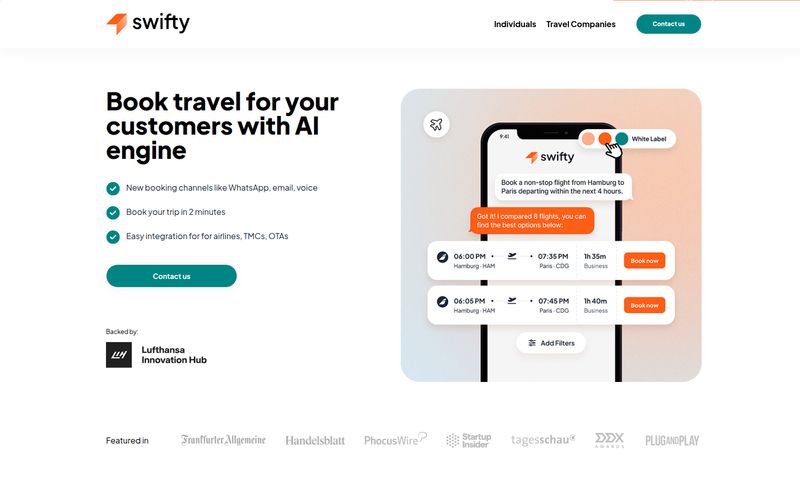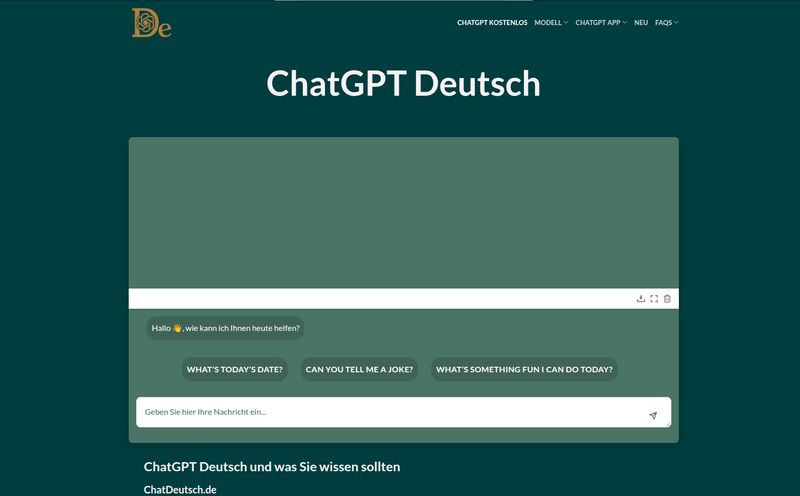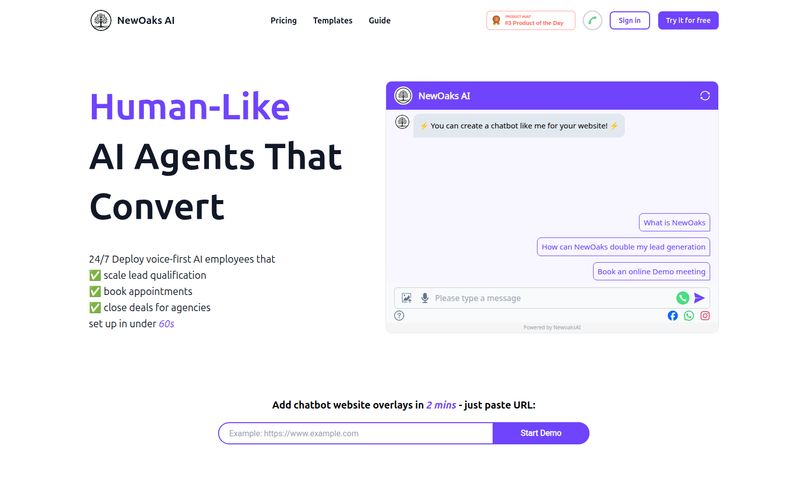It’s 2 AM. The house is quiet, the city is asleep, but your mind is running a marathon. We’ve all been there, right? Staring at the ceiling, wishing you could just talk it out with someone, but not wanting to wake up a friend or partner. It's in these quiet, lonely moments that the digital world has started offering... solutions. And that's where things get interesting.
I’ve been in the SEO and digital trends game for years, and I’ve seen AI go from a nerdy concept to something that’s writing our emails and creating our art. But using it for mental wellness? That felt like a new frontier. So when I stumbled across SoulcareAI, a platform promising an “AI-powered listening ear,” my professional curiosity—and a little bit of personal skepticism—was definitely piqued.
So What Exactly Is SoulcareAI?
At its core, SoulcareAI positions itself as a personal mental wellness and mindfulness companion. Think of it less as a clinical tool and more like a pocket-sized, digital friend that’s available 24/7. It's built on the idea of providing empathetic conversations to help you navigate your feelings, practice mindfulness, or just have a space to vent without judgment. It’s not trying to be a human therapist, and thank goodness for that, because that’s a whole other can of worms. Instead, it’s aiming to fill a gap: immediate, accessible emotional support.

Visit SoulcareAI
The entire vibe of the platform, from its soft color palette to its gentle language, is designed to be calming. It’s a stark contrast to the loud, chaotic energy of most of the internet, which I’ve got to say is a welcome change.
The Big Promise of an AI Shoulder to Cry On
Let's talk about the main draw here. The biggest, most obvious advantage is its 24/7 availability. Mental health struggles don't stick to a 9-to-5 schedule. The ability to open an app at any hour and immediately engage with something supportive is, frankly, a game-changer for many. There’s no waiting list, no scheduling weeks in advance, no “sorry, my next available slot is in three months.” It’s there when you need it.
Then there’s the “empathetic conversation” piece. How can a machine be empathetic? Well, it can’t, not in the human sense. But what it can do is process massive amounts of text data to learn what supportive, validating, and empathetic language looks like. It can recognize keywords and emotional tones in your messages and respond in a way that feels understanding. In my experience, it’s less about the AI having feelings and more about it being a mirror that reflects comforting language back at you. Sometimes, that’s all you need.
“It’s like journaling, but with a partner that actually writes back with something kind instead of just staring at you blankly.”
Let's Get Real: Is an AI Companion for Everyone?
Okay, let's ground ourselves for a second. As promising as it sounds, it’s not a perfect solution for everyone. And I have some reservations. First off, the trial is limited to 20 messages. That’s enough to get a taste, but it feels a bit like being offered a single potato chip. You get a feel for the flavor, but just as you’re getting into a real conversation, you’ll likely hit a paywall. It's a classic lead-gen funnel, which is fine for a business, but can feel a bit transactional when you're in a vulnerable state.
And the biggest point of friction for many will be the very concept itself. Relying on an AI for emotional support feels… weird. There’s a heated debate in the tech and psychology communities about the long-term effects of this. Some experts, like those cited in studies from the National Institute of Mental Health, see huge potential in these technologies for increasing access to care. Others worry that it could become a crutch that prevents people from forming real, human connections. I’m somewhere in the middle. I see it as a tool, like a hammer. You can use it to build a house or you can smash your thumb. It all depends on how you use it.
What About the Cost?
This is where things get a little hazy. When I checked out their site, the “Pricing” page was there, but specific numbers weren’t readily available without signing up. This is a pretty common strategy for SaaS platforms—get the user invested first, then show them the price. I’m not a huge fan of it, but I get it. The free trial is your gateway. You’ll have to go through the initial 20 messages to see what the subscription tiers look like on the other side. My advice? Go in expecting a recurring monthly or annual fee, similar to other mindfulness apps like Calm or Headspace.
AI vs. Human Therapy: Not an Either/Or Situation
It's incredibly important to state this clearly: SoulcareAI is not a replacement for a licensed human therapist. It just isn’t. It cannot diagnose conditions, handle severe mental health crises, or provide the nuanced, deeply personal insight that comes from years of training and human experience.
Instead, I see its role as a powerful supplement. It's for the in-between moments. It's for the person who feels anxious but not in-crisis. It's for the individual who wants to build a mindfulness habit or the person who can't afford or access traditional therapy right now. It makes support more accessible, and that’s a net positive in my book.
Frequently Asked Questions About SoulcareAI
Is SoulcareAI a substitute for a human therapist?
Absolutely not. It's a mental wellness support tool designed for mindfulness and empathetic listening. For clinical diagnoses or severe mental health conditions, please consult a qualified healthcare professional.
How does the free trial work?
The trial gives you access to the AI for up to 20 messages. After that, you will likely be prompted to sign up for a paid subscription plan to continue the conversations.
Can an AI truly be empathetic?
The AI simulates empathy by using advanced natural language processing (NLP) to understand the user's emotional state and respond with supportive and validating language. It doesn't 'feel' empathy, but it's designed to make you feel heard and understood.
Is my conversation with SoulcareAI private and secure?
Most platforms in this space prioritize user privacy and use encryption. However, you should always read the platform's specific privacy policy to understand how your data is stored and used before sharing sensitive personal information.
Who is SoulcareAI best suited for?
It's ideal for individuals looking for 24/7 access to a supportive listener, those wanting to develop a mindfulness practice, or anyone seeking a safe space to vent and process daily stressors.
Final Thoughts
So, where do I land on SoulcareAI? I'm cautiously optimistic. In a world that feels increasingly isolating despite our constant connectivity, a tool that offers a moment of peace and a feeling of being heard has real value. It's not a silver bullet for our collective mental health woes, and we should be careful not to outsource our humanity to algorithms. But as a first line of support, a digital companion for the lonely hours, or a stepping stone to more formal care, it holds a lot of promise. It's a sign of where things are heading, and for now, I'm glad it exists.
References and Sources
- National Institute of Mental Health (NIMH). Technology and the Future of Mental Health Treatment.
- Official Website: While no direct link was provided, users can search for 'SoulcareAI' to find the platform.



